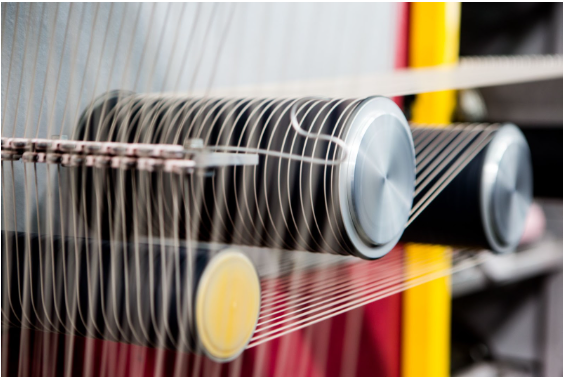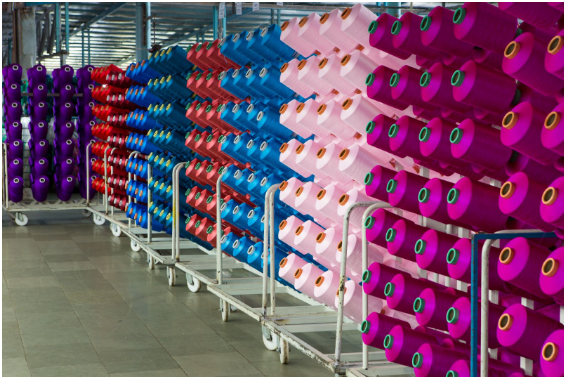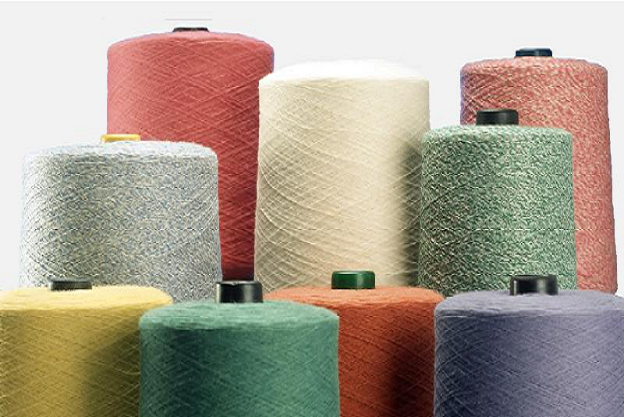Industrial sewing thread plays a crucial role in the manufacturing of any sewn product, forming the foundation of the entire process. The thread’s quality, strength and durability are essential factors that contribute to the end product’s overall performance. Choosing the right industrial sewing thread is critical to ensuring that the garment is made to the highest standards throughout the manufacturing process, from assembly and finishing to decorative stitching, topstitching, heavy-duty sewing and embroidery.
Types of Threads Used
Garments in the industry use several types of core industrial sewing materials to sustain their appearance and durability. Cotton, polyester and nylon are the most popular substances used to make threads for sewing and embroidery.
Natural fibre threads
The most popular natural fibre for stitching is cotton thread. They rarely kink or skip stitches during sewing, have good sewability and are rarely damaged by hot needles. Cotton threads are desirable for topstitched elements because they take dye well and conform to the fabric better than other fibres. They can be used with light to medium-weight cotton, rayon and linen textiles and are readily available in various colours. However, they are weaker and more abrasion resistant than synthetic threads. When wet, these threads tend to shrink. Avoid waxed or glazed quilting threads with the sewing machine because the finish can deteriorate and produce tension issues.
Synthetic threads
The most popular synthetic threads – continuous filament polyester and Nylon6/Nylon66 – were created to function well on synthetic textiles and survive the heat and harsh chemicals of long-lasting press treatments. They are stronger, more resistant to abrasion, mildew and UV radiation, have less shrinkage and are more durable than cotton threads of the same size.
Most sewing tasks can be completed using polyester thread, which is created from 100% polyester. They offer durability and suppleness for sewing on synthetic, natural or hybrid fibre materials. Because of their elasticity, rebound and lack of shrinking, the all-purpose polyester thread works well with knit, stretch and permanent press fabrics.
Nylon threads are delicate, soft, elastic and robust for sewing light to medium-weight synthetics. The capacity to stretch and regain its gloss and filled-in appearance is crucial. This works very well with nylon tricots.
Core spun threads
For garments that need strength and durability, such as socks and outdoor gear, core-spun yarns are preferred for use in textiles and clothing. Moreover, they can be utilised in upholstery and other demanding applications.
Monofilament threads
A monofilament is merely a single nylon or polyester filament. It is easy to unravel and is wiry and stiff. It hurts the skin near it and is tough on machinery. Clear, light and dark grey translucent monofilament threads reflect the fabric’s colour.
Applications of Industrial Sewing Threads
Industrial sewing threads are crucial supplies for the clothing industry since they are fundamental in creating high-quality, long-lasting clothing.
Assembly
To put a garment together, various fabric scraps are sewn together using industrial sewing threads. The fabric type, required seam strength and final garment appearance are considered while choosing the threads.
Finishing
To give the edges of the garments a tidy and polished appearance, finishing procedures like hemming and binding also use industrial sewing threads.
Decorative stitching
To improve the aesthetic of the clothing, decorative stitching is done with industrial sewing threads in various colours, textures and finishes.
Topstitching
Topstitching is a visible stitch line placed outside a garment for ornamental or utilitarian purposes. Industrial sewing threads are utilised for this process.
Also Read : Industrial Yarn and Its Joining Methods – A Complete Guide
Heavy-duty stitching
Industrial sewing threads with great strength and durability are utilised for sewing heavy-duty materials like denim, canvas and leather. These threads are also used for embroidery branding or adding designs to clothing.
AYM Syntex is among the industry leaders in manufacturing specialty yarns and multi-polymer yarns using industrial sewing threads. We pioneer in spinning, texturising, draw twisting and dyeing of polyester and nylon yarns for our clients across a wide range of industries. AYM also offers twisted yarns for sewing thread manufacturers for industrial fabric weaving. Reach out to us for high-quality yarns.




